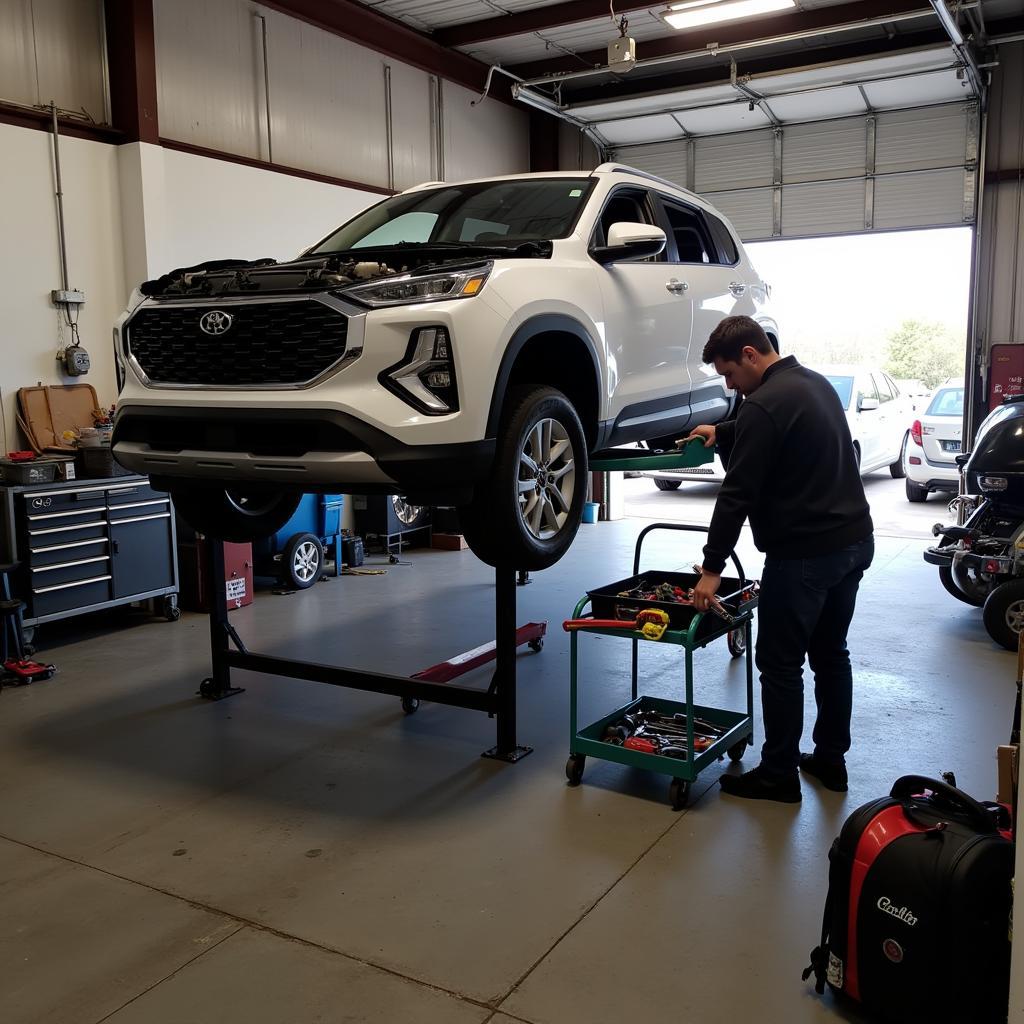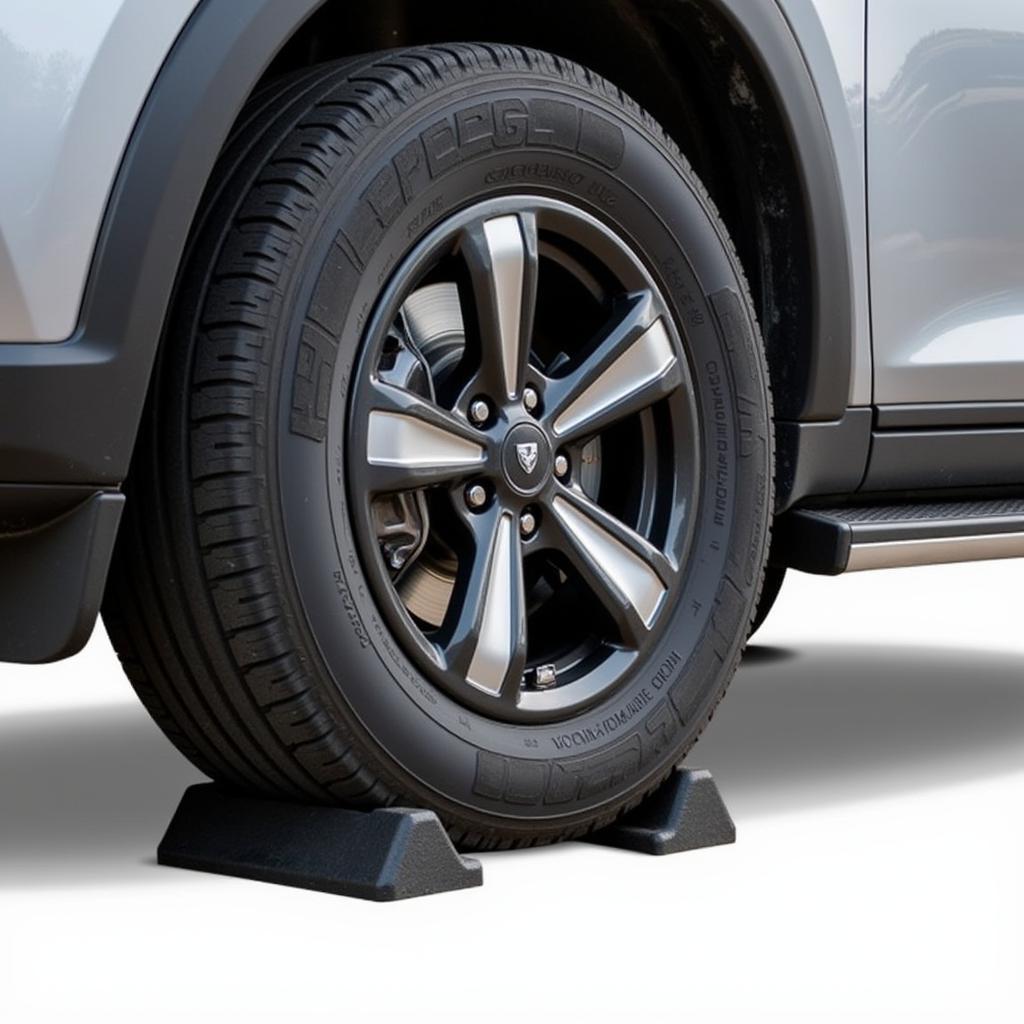Fair Car Maintenance is about more than just keeping your car running; it’s about ensuring safety, reliability, and maximizing the lifespan of your vehicle. Whether you’re a seasoned car enthusiast or a new car owner, understanding the importance of regular maintenance can save you money, time, and potential headaches down the road.
The Importance of Fair Car Maintenance
Neglecting your car’s maintenance needs can lead to a cascade of problems, from reduced fuel efficiency to costly repairs. Just like our bodies need regular checkups, our cars thrive on routine attention.
Here’s why fair car maintenance is non-negotiable:
- Safety First: Regular maintenance ensures that critical safety features like brakes, tires, and lights are in optimal condition, keeping you and other drivers safe on the road.
- Enhanced Performance: A well-maintained car runs more efficiently, offering better fuel economy, smoother handling, and improved performance overall.
- Extended Lifespan: Think of maintenance as preventative care for your car. Addressing minor issues before they escalate can significantly extend the life of your vehicle.
- Increased Resale Value: When it’s time to sell or trade-in your car, a well-documented maintenance history can significantly boost its value.
Essential Car Maintenance Tasks
Now that we understand the “why,” let’s delve into the “what” of fair car maintenance. Here’s a breakdown of essential tasks:
Regular Checks (Monthly or Every Few Fill-Ups)
- Tire Pressure: Maintaining correct tire pressure is crucial for safety, fuel efficiency, and tire longevity. Refer to your owner’s manual or the sticker on your driver’s side doorjamb for the recommended pressure.
- Fluid Levels: Check your engine oil, coolant, brake fluid, power steering fluid, and windshield washer fluid levels regularly. Top off as needed.
- Lights: Inspect all headlights, taillights, brake lights, and turn signals to ensure they are functioning correctly.
- Windshield Wipers: Replace worn-out wiper blades for optimal visibility, especially during inclement weather.
Scheduled Maintenance (Based on Mileage or Time Intervals)
Refer to your car’s owner’s manual for the manufacturer’s recommended maintenance schedule. This schedule outlines specific service intervals for various components.
Here are some key services included in most scheduled maintenance plans:
- Oil and Filter Change: Arguably the most crucial maintenance task, regular oil changes lubricate your engine, preventing excessive wear and tear.
- Air Filter Replacement: A clean air filter ensures optimal airflow to your engine, improving performance and fuel efficiency.
- Spark Plug Replacement: Worn-out spark plugs can lead to misfires, reduced fuel economy, and engine damage.
- Brake Inspection and Service: Regular brake inspections and timely pad/rotor replacements are essential for safe stopping distances.
- Coolant Flush: The coolant keeps your engine from overheating. Flushing and replacing the coolant at recommended intervals prevents corrosion and ensures optimal cooling system performance.
 Mechanic inspecting a car engine
Mechanic inspecting a car engine
Seasonal Maintenance
Preparing your car for different seasons can enhance its performance and longevity:
- Winterization: In colder climates, consider a coolant flush, battery check, and tire pressure adjustments to prepare for freezing temperatures.
- Summer Prep: Hot weather can be equally taxing on your car. Ensure your cooling system is in top shape, check tire pressure, and consider using a sunshade to protect your interior.
Finding a Trustworthy Mechanic
Unless you’re a skilled DIY mechanic, finding a reputable and trustworthy mechanic is paramount.
What paid service will show my car’s warranty and maintenance is a question many car owners ask. Seeking recommendations from friends, family, or online reviews can point you in the right direction.
Here are some tips for selecting a good mechanic:
- Ask for Recommendations: Word of mouth is often the best advertisement.
- Check for Certifications: Look for certifications like ASE (Automotive Service Excellence) which indicate a mechanic’s competency.
- Get Quotes: Don’t hesitate to get multiple quotes for repairs or services to compare pricing and ensure transparency.
- Communicate Clearly: Explain your car’s issues or concerns clearly and ask questions about the recommended repairs.
Prolonging Your Car’s Life: Tips and Tricks
Beyond the essentials, here are some additional tips to maximize your car’s lifespan:
- Drive Gently: Avoid aggressive driving habits like sudden acceleration and hard braking, which put extra stress on your car’s components.
- Keep It Clean: Regular washes and waxes not only keep your car looking its best but also protect the paint from the elements.
- Listen to Your Car: Pay attention to any unusual noises, vibrations, or warning lights. Addressing issues early can prevent more significant problems down the line.
Conclusion
Fair car maintenance is an investment that pays dividends in the long run. By adhering to a regular maintenance schedule, addressing issues promptly, and finding a trustworthy mechanic, you can keep your car running smoothly, safely, and for years to come.
Remember, your car is an intricate machine that relies on proper care and attention. By prioritizing fair car maintenance, you’re not just extending the life of your vehicle; you’re also ensuring your safety and peace of mind on the road.
Need help with your car maintenance? Contact AutoTipPro at +1 (641) 206-8880 or visit our office at 500 N St Mary’s St, San Antonio, TX 78205, United States.
FAQ
-
Q: How often should I change my car’s oil?
- A: While it varies depending on your car and driving habits, the general rule of thumb is every 3,000 miles or 3 months for conventional oil or every 5,000-7,500 miles for synthetic oil.
-
Q: What does a “check engine” light mean?
- A: A “check engine” light can indicate a wide range of issues, from a loose gas cap to a more serious engine problem. It’s crucial to get it diagnosed by a mechanic as soon as possible.
-
Q: How can I tell if my tires need replacing?
- A: Check your tire tread depth using a penny. If you can see Lincoln’s head, your tires are getting worn and may need replacing soon.
-
Q: What should I do if my car overheats?
- A: Safely pull over to the side of the road and turn off the engine immediately. Let the engine cool down completely before checking the coolant level. It’s best to have the car towed to a mechanic to diagnose and fix the overheating issue.
-
Q: How important is it to follow the manufacturer’s recommended maintenance schedule?
- A: Following the manufacturer’s recommended maintenance schedule is crucial for keeping your car running smoothly and for maintaining its warranty. It outlines specific service intervals for different components based on mileage or time, ensuring that your car receives the necessary preventative care at the right time.






Leave a Reply